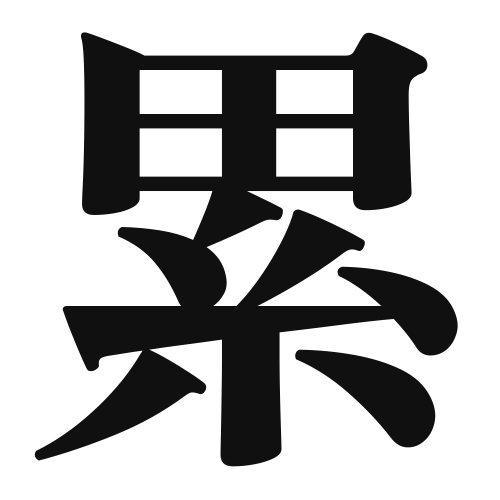1. Overview of Meaning
The kanji “累” (pronounced “rui”) generally means “to accumulate” or “to pile up.” It often conveys the idea of something being stacked or layered, whether in a physical or metaphorical sense.
2. Formation and Radical
Formation of the Kanji: The kanji “累” is a compound character (会意文字) that combines elements to convey its meaning. It consists of the radical for “tree” (木) and the character for “to come” (来), suggesting the idea of something building up over time, like trees accumulating in a forest.
Radical: The radical of “累” is 木 (tree), which is often associated with growth and accumulation in various contexts.
3. Examples of Usage
Common Words and Phrases: Some frequently used words that include “累” are:
- 累積 (るいせき, ruiseki) – accumulation
- 累犯 (るいはん, ruihan) – repeat offense
Example Sentences in Daily Conversation:
- 彼は仕事で多くの経験を累積している。
(He has accumulated a lot of experience at work.) - 彼女は累犯者として知られている。
(She is known as a repeat offender.)
4. Synonyms and Antonyms
Similar Kanji: A kanji with a similar meaning is “積” (せき, seki), which also means “to accumulate” but often refers specifically to stacking or piling up physical objects.
Opposite Kanji: An antonym is “減” (げん, gen), which means “to decrease” or “to reduce,” representing the opposite action of accumulation.
5. Cultural and Historical Background
Relation to Japanese Culture: The concept of accumulation is significant in Japanese culture, often reflecting the importance of building knowledge, experience, and relationships over time.
Proverbs and Idioms: One relevant proverb is “千里の道も一歩から” (Senri no michi mo ippo kara), which means “A journey of a thousand miles begins with a single step,” emphasizing the idea of gradual accumulation leading to significant achievements.
